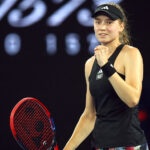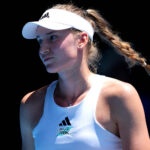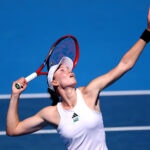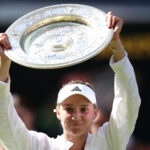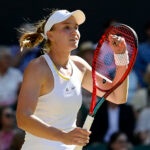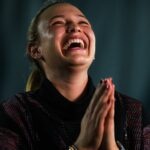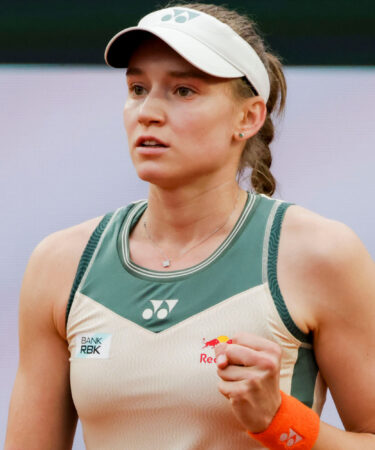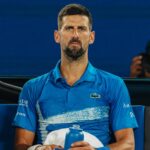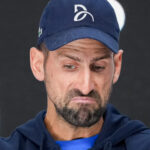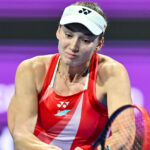Exclusive – Rybakina’s coach, Stefano Vukov: “Elena didn’t get all the things you usually get from winning a Grand Slam title”
Stefano Vukov, Elena Rybakina’s coach, speaks to Tennis Majors about post-Wimbledon hungover, the origin of his pupil’s incredible serve and much more.
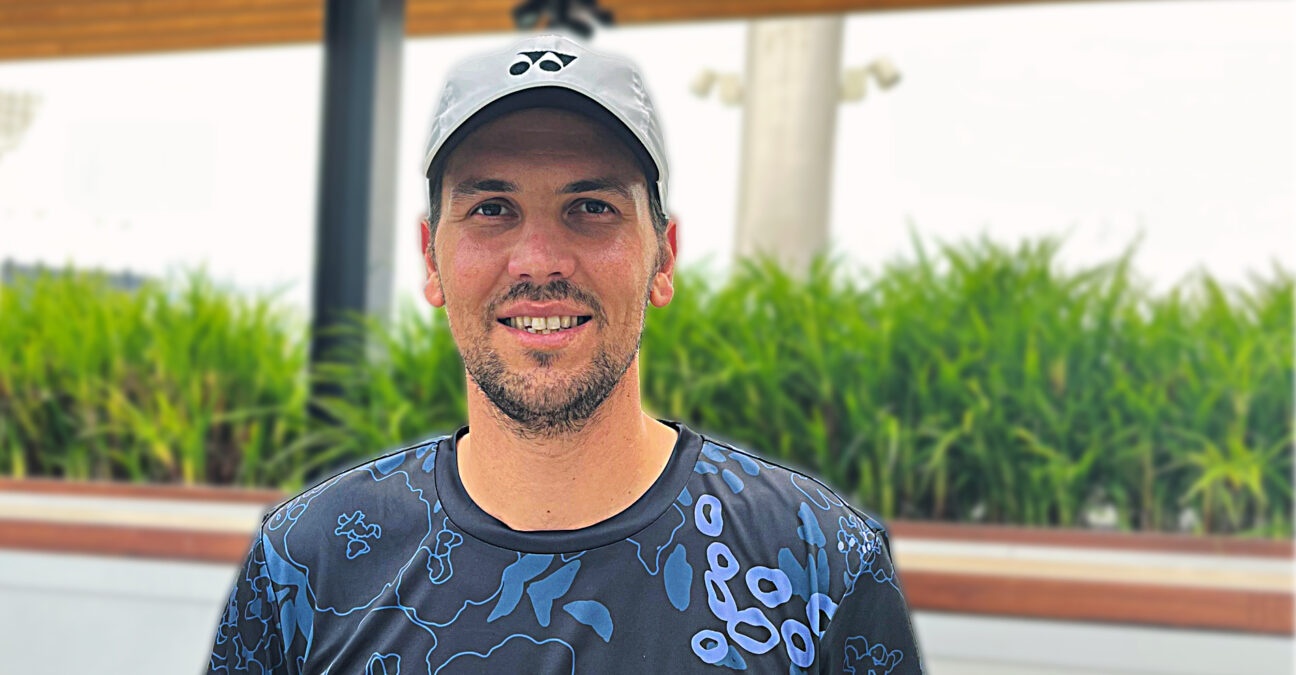 Stefano Vukov, Australian Open 2023 – © Tennis Majors
Stefano Vukov, Australian Open 2023 – © Tennis Majors
Once again, Elena Rybakina is storming through the draw of a Grand Slam tournament. After a few months of subpar results following her Wimbledon title, the 23-year old born in Moscow is playing at a level scary to the rest of the field.
She lost only one set on her path to Australian Open semifinals, to Danielle Collins, having beaten world number one Iga Swiatek along the way.
Speaking exclusively to Tennis Majors, her coach Stefano Vukov said that Rybakina can go all the way in Melbourne, he revealed what was the emphasis during the offseason, spoke about communication during the match, their routines, Rybakina’s personality etc.
What were the difficulties of dealing with a huge achievement such as winning the Wimbledon title?
Different kinds of pressure, but also different kinds of commitments. We’ve had a couple of tough months after Wimbledon because we did not have enough time to prepare. She went back to Kazakhstan – commitments with the Federation and her country, she is a national hero back home, so there were many interviews. Elena is a very charitable person, so she went to help out the kids, visited dog shelters as well etc.
Therefore, our US swing preparation was far from ideal. We prepared for maybe four or five days in Switzerland before going to San Jose. Not getting the Wimbledon points made her draws tougher in the beginning. She started to play better in Cincinnati, but woke up with a stiff neck the day after her quarterfinal loss to Keys. Then we went straight to New York – no time to rest, sponsor commitments… Being born in Russia, there was a lot of media pressure on her in the USA because of the war. She lost in the first round (to Clara Burel), it was a really bad day.
I have to say that Elena didn’t get all the things you usually get from winning a Grand Slam title. People think it’s just “you get a lot of money and that’s it“, but in that regard also she was affected: points affect rankings, and rankings affect player’s bonuses in contracts. She didn’t get to play the WTA Finals either.
Also, it took her some time to realize what she had done. There were so many emotions, so many things happening – you see a lot of Grand Slam champions having a down period afterwards. When you’re young, it’s normal – a lot of different people come up, a lot of attention from the media, it can be overwhelming.
Elena is a wonderful girl, a big introvert, so we tried our best to protect her from a lot of bad media coverage as well. Not saying all the media is bad, though.
I feel that she improved the whole package slightly
Stefano Vukov
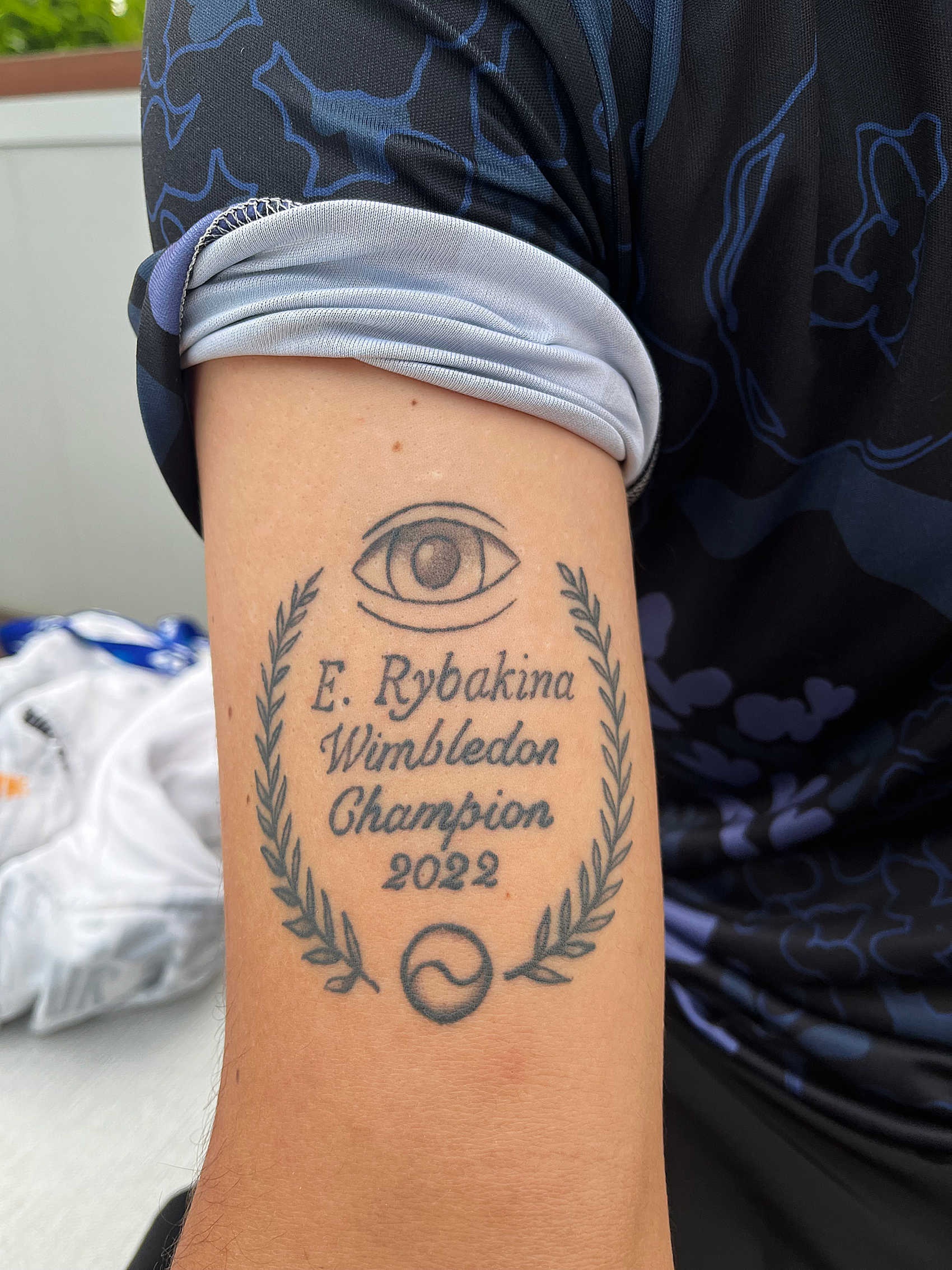
The offseason was a great opportunity to turn a new leaf. What exactly was the emphasis?
Physical aspect, definitely. We have a new fitness coach now, Azuz Simcich, who is doing a great job with her, just like Dario Novak did in the past. We worked on footwork and the movement, I think you can tell in this tournament that she is moving much better. The main emphasis was on taking the correct steps, positioning inside the court.
Another factor – throughout her career so far, Elena was a bit shy when it comes to lifting weights, but she tried it now. So far, it is going really well, because she is stronger.
And tennis-wise?
We are trying to improve the return – to spin the ball more, to stay a bit lower under the ball, which comes down to footwork and legs. We wanted her to step into the court and be aggressive, possibly following it up with going to the net. I feel her volleys have improved quite a bit.
When it comes to the serve, you have to repeat technique all the time, especially with younger players and in women’s tennis. Because technique can be lost with a lot of matches, if you don’t go back to it.
Overall, I feel that she improved the whole package slightly.
What is the key to her serve in the first place, because Elena probably has the best serve in the world right now?
This has been a process of four years, not something that changed in one offseason: I’ve been working with her on it for four offseasons already. We shortened the motion biomechanically, tried to make it as ‘manly’ as possible, more explosive and powerful. She is getting more pop on the ball and she has the fastest serve of the Australian Open so far, 196 km/h.
Also, she is very gifted in a sense that she really has a great feel when she raises her arms, which is not a quality many players possess. Also the toss, pushing a little bit more with the legs, better shoulder rotation…
Once you serve over 180 km/h consistently, it doesn’t even matter where you serve, you can see that the other players have trouble with it. We’ve seen it with Swiatek, and when the speed is connecting with precision, it is unreturnable – against Ostapenko, she had eight aces.
Not only technically, but working on the mentality behind the serve – what you want from your serve is for the ball not to come back. Now, she is not only starting to understand all of these things, but she understands which type of serve to use in which moment, in order to set up the point the way she wants.
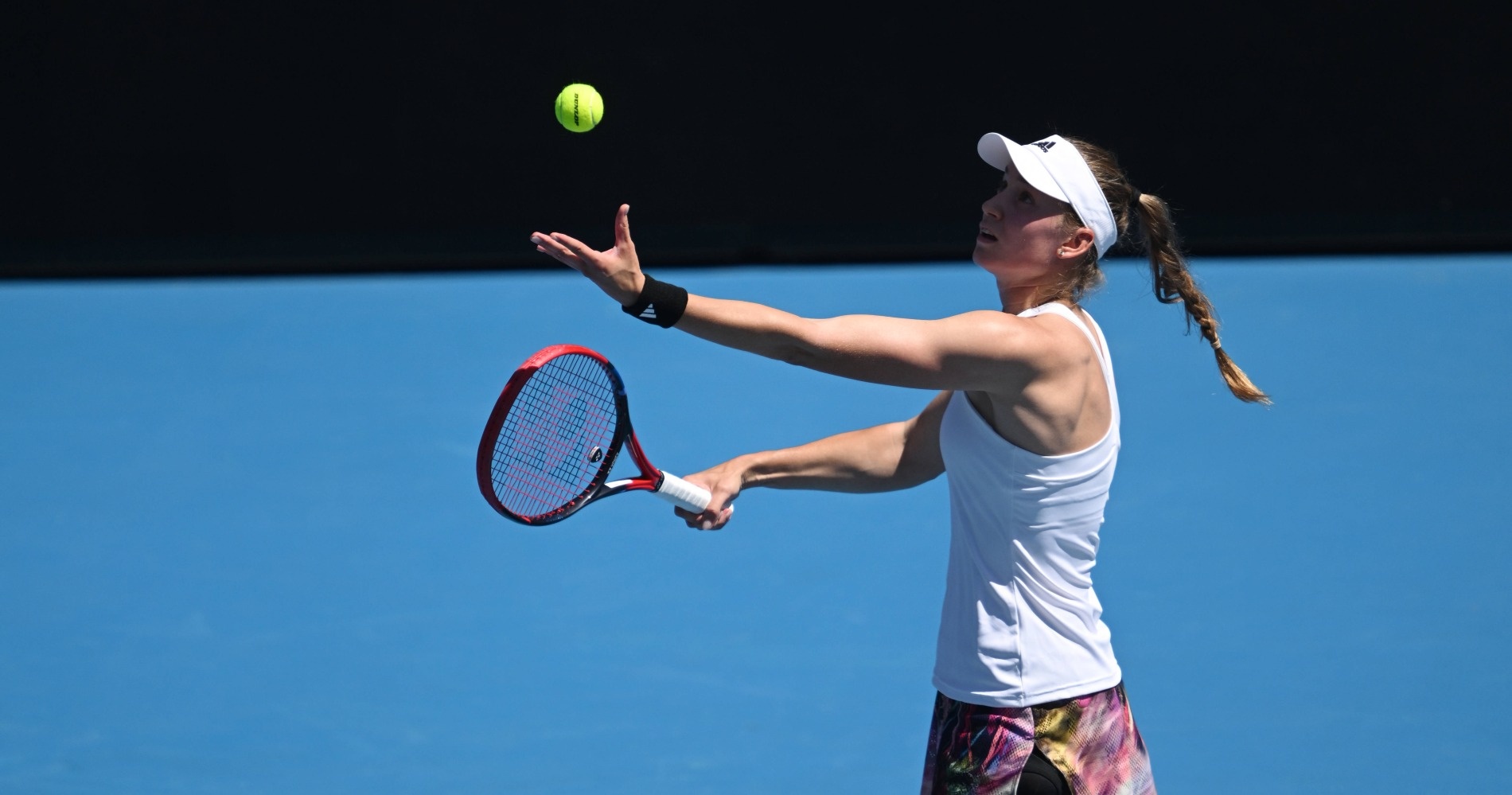
She is able to manage her emotions better on the biggest stage
Stefano Vukov
Mentally, how was Elena able to flip the switch after a tough US swing that you mentioned?
I think it’s due to experience. You just have to live through some things, to come to terms with the fact that there are going to be ups and downs. Once you understand this, you can focus on work you need to do. A lot of people say ‘practice makes perfect’, which I think is not the right way to put it. Practice makes you progress, that’s better.
Going through the rollercoaster of emotions at Wimbledon taught her a lot also. She is able to manage her emotions better on the biggest stage, because it is no longer something new for her. She understands what it takes to win a Grand Slam title, all of us in the team understand it as well, so we are more calm.
I always tell her not to worry and, this is going to sound weird, but I tell her: “Noone cares if you win or if you lose!” She is going with this mentality and it is working for her.
What does your routine look like on a day of the big match?
A lot of people don’t know, but I’ve been in women’s tennis for twelve years now, so I know a lot of the players since they were juniors and before. I know their flaws and I try to see if someone has improved some facet of their game. In the match against Swiatek, Elena played tactically amazing – I can only give the information, but she is the one who needs to execute it. She has been better at using the information I give her.
We usually talk about the tactics the night before the match and on the morning of the match. During the warmup, I will give her two or three pointers – things we really want to focus on.
For example, we came today (before the match vs. Ostapenko) early, had breakfast at the club, then she did her routines with the physio Stefan Dull, warmed up with her fitness coach, then hit with me as we were going through some patterns that I would like her to do during the match. She doesn’t have any superstitions, in the team we are all very simple.
Game-wise, do you have something in mind that would be the next step for Elena?
I always think that there is a lot to improve. She can move even better, she can get stronger, she can become more explosive… I would like to see her more on the net, but she made progress there, which I am very happy about. But overall – she has got an amazing backhand, both crosscourt and down the line, the forehand is improving as well.
It also depends on other players as well. If there is someone to beat, you need to change and adapt in order to do so. Look at all the top guys – even Roger changed his forehand after becoming number one, went to the bigger head of the racquet, so that he could deal with Rafa. And then Novak came, so he needed to adapt again.
An obvious one, but do you see Elena going all the way here in Melbourne?
I always see her going all the way, I have to believe. At this moment, the competition is a bit different compared to the past. Earlier, we had domination of Serena Williams, we had Henin, Clijsters and a lot of other players – if you have someone as good as Serena, as I said before, the others have to develop more. Today, yes, all of the top 10 can beat each other, but I feel that now it’s much more possible that someone 50th in the world beats a top 10 player. It’s evened out a bit.
How do you communicate during the match, what does Elena need from you?
Energy, definitely. She is very stoic and calm, keeps the emotions inside. Even today, Elena told me that she needs the energy from me. Also, I remind her sometimes of the small tactical details that we went through. Emotions sometimes block you from thinking, especially in important stages of the match. I am glad that the coaching is allowed now, because some details are easier to see from the outside.
Some players adapt straight away – for instance, I think Danielle Collins is terrific in that regard, she is able to to recognize those situations. Elena was a bit “green”, but she is starting to adapt to different circumstances by herself more now. It happens that players lose a few games because the opponent starts to do something differently – lift the ball a bit higher or they try to pull you inside the courts – and there is no proper adjustment coming from the other side of the net.
Lastly, is there something people don’t know about Elena and it would be nice to know or important to know?
Elena is one of the players that really listens. She is always involved 100%. She is a very smart player, always ready to improve, and I am really glad we are on the same page.
